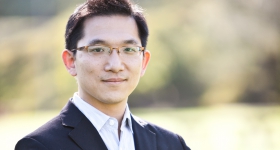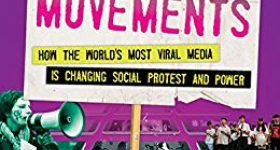Photo provided by Creative Commons search on Google.
When people ask where I am from, I tell them I am American.
But the reality is, I am American purely by luck.
I was fortunate to be the son of two brilliant Chinese students
who received scholarships to study in the United States in the 1980s. Then, the
stars were aligned as another group of Chinese students decided to challenge
China’s Communist regime in 1989 at Tiananmen Square.
Again, things worked in our favor when the US government
decided, in 1992, to grant about 80,000 Chinese students, who were in the U.S.
during the Tiananmen protests, amnesty
and an opportunity to apply for residency. The intent was to prevent anyone
from being forced back to China and persecuted. My mother signed up, and by
luck, we got our green card. I became a citizen in 1998.
Immigration reform can happen if we can agree that luck
plays a large part in allowing us to stay in the U.S. Whether your forbearers
were lucky to survive the Mayflower voyage, a slave ship (arguably unlucky), or
a shaky boat ride from Cuba, or if your parents had a relative in the U.S. that
sponsored them, most of us are fortunate beneficiaries of the risks and
opportunities taken by previous generations, as well as of the patchwork of
immigration policies throughout US history that favored certain groups (me in
1992) over others due solely to the political conditions at the time.
Now, reform is badly needed, because this patchwork approach
no longer makes sense in our global economy. Countries around the world are changing immigration laws to
fulfill economic goals, and trying to attract the brightest scholars,
entrepreneurs, and investors to their shores. Other nations actively recruit guest workers to
fulfill certain low-skilled jobs that their own population remain unwilling to do. The U.S. needs follow that path and implement an immigration policy that is
less influenced by the whims of geo-politics. Visas need to be increased for
those who can clearly contribute to America’s future economic growth.
Likewise, America, being a nation that values justice and
human rights, must resolve to provide a clear pathway to citizenship for the
nearly 12 million undocumented immigrants currently within its borders.
In a way, these 12 million people are unlucky. They too
sought better opportunities in America, but no law or policy has ever been
passed, and a major political event has not happened, to give them a legal
pathway in U.S. The clear unlucky ones are the so-called DREAMers, because
they were brought to the U.S. involuntarily as children, and are American in
every way except for legal recognition.
Denied everything from college admissions to driver’s
licenses, those who are undocumented have become a permanent underclass within
our society. America has criticized foreign governments for limiting the
movements and opportunities of their own people, especially in North Korea and
China, yet we do the same for nearly 4 percent of our own population. But
deportation is out of the question, because most policymakers agree that such a
venture is prohibitively expensive, and impossible to implement.
In sum, US immigration policies need to be more strategic
and more humane.
The reforms proposed by the “gang of eight” US senators and
President Barack Obama last week represents a good first step in this massive
overhaul.
AAPIs will be paying attention to see whether forthcoming new rules preserve family
immigration, a key way for relatives to stay together and allow the AAPI community
in the U.S. to continue to grow.
Undocumented immigrants, including those within our community, need a clear path to citizenship,
with no vague language, indefinite delays, or unaffordable penalty fees. Strong border protection is important, but it should not become a cumbersome precondition, because this risks further delays and legal ambiguity.
Higher visa caps and faster processing
of the green card backlog will also benefit AAPIs, but any changes need to be balanced
with protecting American jobs. There needs to be controls to make sure immigrants fill job functions that have a labor and skill
shortage in the U.S.
Currently, the discussions over immigration reform are still in a very initial stage, but the political will seems strong. Hyphen’s politics team will be keeping a close eye on the debate, and especially on proposals and policies that will disproportionately affect AAPIs.
If both Democrats and Republicans can come to the table with
a sensible approach, immigration reform could be an important example of
bipartisanship for our country to move forward.
Lin Yang is the political editor of Hyphen magazine. The views expressed here are his own.










Comments